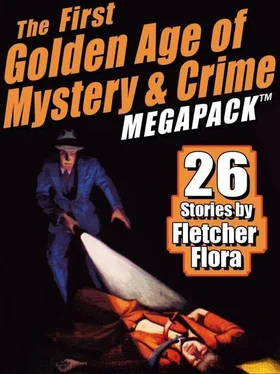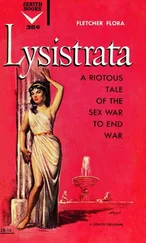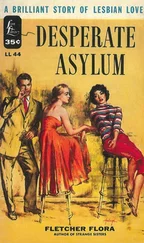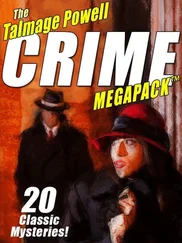Teresa didn’t care. At first she had, but not any longer. Whatever the trouble, she liked Cousin Kelly better than anyone else. She loved Cousin Kelly. She wished and wished that he could come to live with them in the apartment. She loved him far more, to tell the truth, than she loved Mother and Father. In fact, she didn’t love Mother and Father at all, although she didn’t, on the contrary, hate them, either. She was merely indifferent to them. In the beginning it had made her feel guilty and unhappy, the secret knowledge of her indifference, but now it was just something that she lived with every day and hardly ever thought about.
Dressed in her pale yellow jumper and white blouse, she went out of the room and onto a gallery that ran along the wall above the deep pit of the living room. She descended the stairs at one end of the gallery and turned back from there through a dining room to the kitchen, where Hannah was. Hannah came in every day from nine to six to cook and clean. Sometimes, when Mother and Father entertained, she stayed later. She was fat and jolly and ages old, and Teresa liked her.
“Good-morning, missy,” Hannah said. “You’re mighty prettied up this morning, I must say.”
“This afternoon,” said Teresa, “I’m going to the park to meet a friend.”
“That’s nice. Meanwhile, what would you like for breakfast?”
“A poached egg, please, with two strips of bacon. And one slice of toast.”
“Simple enough. You just sit down there and keep Hannah company while she’s fixing it.”
Teresa sat at the kitchen table and watched while Hannah broke the egg in the funny little poaching pan and put two strips of bacon on the grill. The bacon began to sizzle, and the water began to boil in the little pan under the cup the egg was in. Teresa liked to sit in the kitchen and watch Hannah cook her breakfast. Hannah always said it kept her company, and it was true, although they talked very little while Hannah worked, or not at all. That was one of the nice things about Hannah. You could sit with her and say nothing and still feel comfortably that you were keeping company. It was different with Mother. When you sat with Mother and said nothing for a long time, you always felt uneasily that something should be said, and after a while you tried to say it, and it always came out wrong and awkward, and then you wished you hadn’t tried.
Teresa ate her egg and bacon and toast at the kitchen table, and then, leaving Hannah to her work, went back into the living room and wondered how she could spend the time, which was almost forever, until it was afternoon. She thought about going down in the elevator and outside to talk to the doorman and stroll up and down the sidewalk, but she didn’t want to do that because there was the day out there, warm and golden and waiting, and she wanted to enter it for the first time, fresh and exciting with nothing worn off, when she went out to meet Cousin Kelly. So, saving the day for a special hour, she looked at magazines in the living room until it was after eleven and she could go up to see Mother, who was now probably awake.
Sure enough, she was. Mother was sitting up in bed, braced against the headboard, and in one hand was a saucer, and in the other, momentarily stopped halfway between the saucer and her mouth, was a cup of coffee, which had been served by Hannah and from which Mother had just taken a sip. A second bed near Mother’s was rumpled and empty. This bed was Father’s, of course, and it was apparent that Father had risen early and gone away somewhere, probably downtown to his office. Father did not usually go to his office on Saturdays, but once in a while he went when he had an appointment that promised to be profitable, and you could always tell by Father’s humor when he got home if things had gone well or not. If things had gone well, he was expansive and tolerant. If things had gone ill, he was cross and critical and could hardly wait for five o’clock, when he allowed himself his first cocktail of the day.
Mother’s cup rattled in her saucer, and she spoke to Teresa with a cheerfulness that was forced and bright and artificial. Mother, in fact, looked as if she needed a cocktail already, although it was not yet noon; or perhaps she only needed a little longer to recover from those she had had the night before. The flesh was smudged beneath her eyes, and her face, cleaned of makeup, looked drawn and tired and older than it was.
“Good morning, darling.” Mother said. “Have you been up long?
“Oh, yes,” Teresa said. “It’s almost noon.”
“That late? Did Hannah give you your breakfast?”
“Yes. I had an egg and two strips of bacon.”
Mother reacted as if the words were painful to her. Her mouth turned down, becoming for a moment really ugly, and she set her cup and saucer carefully aside on the table between her bed and Father’s.
“What have you been doing?”
“Nothing much. I looked at some magazines.” Teresa hesitated, feeling within her the sudden singing exhilaration of her anticipation. “This afternoon I would like to go across to the park. May I, please?”
“I think it would be all right if you are careful crossing the boulevard. Why do you want to go to the park?”
“I’m going to meet Cousin Kelly there.”
There it was again, that strange blankness in Mother’s eyes, the curious cold hardening of her face.
“I hope you are not going to be difficult, Teresa,” Mother said.
The remark seemed so irrational, so utterly unrelated to anything that had been said or to any intention that Teresa had, that it was quite hopeless to try to respond to it. Teresa in her hopelessness was silent, and after a moment Mother’s shoulders moved slightly in a gesture that was not big enough to be a shrug.
“Well, you have a nice time in the park, darling, and be sure you have your lunch before you go.”
This was clearly a dismissal, and Teresa, relieved, went downstairs and out to the kitchen to keep Hannah company. At one o’clock, Hannah gave her lunch, tomato soup and crackers spread with soft cheese and a green salad and milk. After she had eaten her lunch it was almost one-thirty, and Teresa returned to the living room and sat down on the edge of a chair and deliberately waited and waited while her anticipation of the afternoon grew and grew and became so intense that it could no longer be borne, and then, at last, she left the apartment and went downstairs and out into the golden, sunbathed street. At the curb she paused and looked left for traffic, and then she ran across to a medial strip that divided the boulevard, there pausing again and this time looking right. Safely all the way across, she entered the park, passing between stone pillars, and followed a concrete walk as far as a green wooden bench within sight of the fountain, which tossed into the air a glittering shower that fell, the upward force of the fountain spent, back into the surrounding pool with a sound of summer rain. Sitting there on the bench, watching the fountain, she waited.
Waiting, she tried to remember where and when she had first seen Cousin Kelly, and she couldn’t. As hard as she tried, she couldn’t for the life of her. He had just suddenly come into her life, that was all, and her life, which had been lonely, was filled thereafter with love requited and promises kept. It did not matter where and when he had come. It only mattered that he had come somewhere and sometime, and that he was, having approached quietly in the midst of her pondering, there at this instant.
He stood a step away on the concrete walk and smiled down at her. His hair was thick and pale blond; he never wore a hat, winter or summer, and the sunlight touched the hair and turned it to silver. His eyes were blue, brimming with grave and secret laughter, and below one of the eyes, running down at an angle across his cheek, was the lingering trace of an old scar. “Hello, Tess,” he said.
Читать дальше












